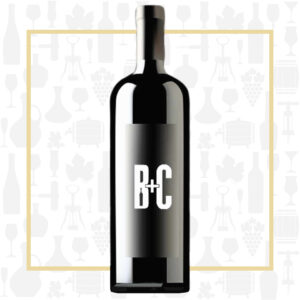Cellar Profile
Region
Located in the southwest of Switzerland lies the wide, glacial Rhône valley known as the Valais—one of 26 cantons that form the Swiss Confederation. The Valais region benefits from a particular microclimate as a result of its latitude and the fact that the valley is situated in between the Bernese Alps in the north and the Pennine Alps in the south. Home to the highest peaks in the Swiss Alps, more than 50 mountains exceed 4,000 meters—the highest of which reaches 4,634 meters (15,203 feet). At altitudes like this, the region is one of the wettest in the country. That being said, air loses its humidity when passing summits above 4,000 meters and forces a strong, dry, downward wind into the Rhône valley (known as the Föhn), deeming it the driest valley and wine producing region in Switzerland. This continental dichotomy creates ideal growing conditions; the crisp, dry air provokes a diurnal shift that is particularly helpful in the spring when the risk of frost is high, as well as in the fall, helping to ensure slow ripening. Overall, the Valais plain receives less than 600 millimetres of rain per year and more than 2,000 hours of sunshine during the growing season. At 5,000 hectares, the Valais is the largest AOC in Switzerland and accounts for a third of the total wine production.
Vineyard
One of the key philosophies in the vineyards for Jean-René Germanier is striking a balance between the amount of leaf surface and the quantity of grapes on the vine—an extremely important relationship when it comes to photosynthesis; more leaves means more vigour which often results in an abundance of grapes with low concentration. Leaf plucking and dropping fruit controls yields and boosts flavours. In addition to lowering yields, farming organically without the use of herbicides and pesticides, harvesting by hand are of utmost importance. The vines come from glacial moraine and slate soils in the village of Vétroz. Vines are an average of 30 years old and farmed organically.
Varieties
Petite Arvine is a white grape variety grown mainly in Valais, Switzerland and Italy’s Valle d’Aosta. It is unclear exactly where the variety originated, and growers and officials from both regions claim it as their own. Petite Arvine in the Valais region has growing records dating back to 1602. Petite Arvine wines are defined by their bracing acidity and grapefruit aromas. They often show a touch of salty minerality on the palate. Petite Arvine is early budding and late ripening, and is somewhat fussy in the vineyard. It needs sunny sites that are protected from the wind so its grapes can reach full ripeness, which can be up to a month after Chasselas.
Winemaking
To preserve the freshness of the wine it is fermented in temperature-controlled stainless steel and aged on its fine lees for 10 months prior to bottling.
Tasting Notes
The 2018 Petit Arvine is bright with golden hues in the glass. The nose is honeyed with notes of golden apples, peach and a salty minerality. The palate flows from the nose with apples and peaches, limestone and saline all carried by racy acidity leading into a waxy finish.

 info@buyersandcellars.ca
www.buyersandcellars.ca
info@buyersandcellars.ca
www.buyersandcellars.ca